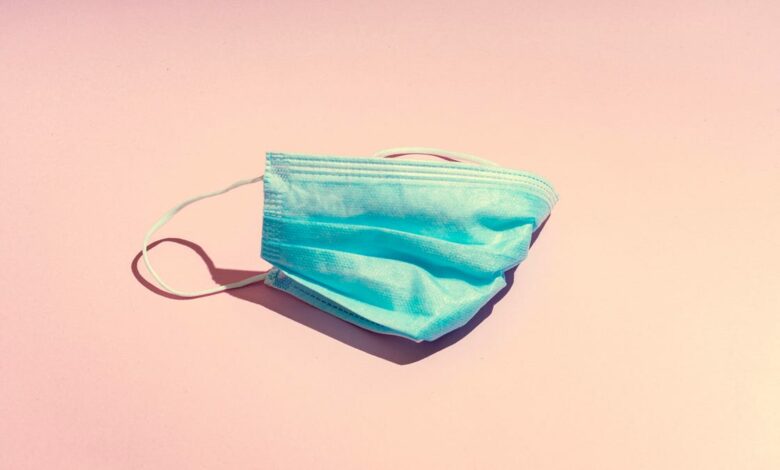There are 3 new COVID vaccines, but the way you pay for them has changed. What you need to know

The US Food and Drug Administration has given approval Novavax’s new COVID vaccine last week for people aged 12 and over. It is in line with the renewed formulas of Moderna and Pfizer-BioNTech, which were approved the week before.
This means you can choose from three new vaccines that are more closely matched to the COVID strain that is currently making people sick. The Centers for Disease Control and Prevention has already recommended the updated COVID vaccines for everyone 6 months and older, along with an updated seasonal flu vaccine so people can get one as soon as it hits the shelves at their local pharmacy, as long as it’s been at least two months since their last COVID shot. (For people who haven’t been vaccinated before, the timing and number of doses will vary.)
By summer 2024, COVID numbers have been “very high” wastewater data from the CDC. Part of the summer peak problem may be related to the waning immunity of people after previous vaccines and infections, along with the recurring new and contagious versions of omikron. The availability of updated vaccines is expected to be a useful tool in staving off serious illness as we enter the colder months and respiratory virus season.
Now that COVID has gone from pandemic to endemic — meaning COVID is still making people sick, but in more predictable ways that can be mitigated by available treatments — officials at the CDC have streamlined guidelines around vaccines and isolation to make it easier for everyone to follow when they have symptoms of a respiratory virus. Here’s what you need to know.
When will the new COVID vaccines be available? What makes them different from last year’s?
COVID vaccines should be available now. To see which vaccines are in stock at your favorite pharmacy, you can search for Vaccines.gov by zip code, select a location and call the pharmacy. Or you can go directly to the pharmacy’s website.
All of the vaccines approved by the FDA this summer — Moderna, Pfizer and Novavax — target a strain of the virus that is more similar to the currently circulating strain than last year’s vaccine strain. This is expected to provide better protection. However, there is a difference between the updated Novavax vaccine, which is a protein based vaccineand Moderna and Pfizer, which are mRNA vaccines. Novavax’s new vaccine matches the JN.1 version of COVID; Pfizer and Moderna’s match KP.2, which is a more recently stem of the JN.1 line.
How will people pay for COVID vaccines now?
One change this time around is that the cost of COVID vaccines will no longer be covered by the federal government, even though both COVID and flu vaccines should be covered by people’s insurance, including MedicareThe Bridge Access Program offered COVID vaccines for free to people without health insurance, although it ended in August due to lack of funding. While new measures will be needed to make COVID vaccines free for adults, a separate program is in place to vaccines free for all children.
According to a CDC price sheetthe cost of the Pfizer vaccine in the private sector is about $137, and the Moderna vaccine is about $142. For adults who do not have Medicare, Medicaid or other insurance, the cost of a COVID vaccine could be out of pocket let them go up to $200 after deduction of administration costs.
Pfizer said it patient assistance program will be available later this fall and will offer the vaccine to “eligible uninsured individuals” ages 12 and older at no cost. Moderna announced a patient assistance program last yearbut did not immediately respond to a request for comment on its availability.
What should I do if I test positive for COVID?
In addition to vaccination guidelines that are more like annual flu shots, guidelines for what to do if you are sick generally focus more on what to do if you have symptoms of a respiratory virus or feeling sick, rather than the results of a COVID test. But because treatment depends on which virus you have, it’s always best to get a COVID test if you’re able to.
If you are at higher risk for a respiratory virus, including complications from COVID, influenza, or RSV, it is especially important to figure out which virus you have (by getting tested and seeking medical attention) so that you can get the right treatment, as treatment varies depending on the virus you are infected with.
If you are an adult aged 50 or over, or if you have a chronic condition such as heart disease, high blood pressure, asthma, diabetes or something else, You may be eligible for an antiviral medication (including Paxlovid) that reduces the severity of the illness and lowers your risk of hospitalization. You can get it by calling your regular doctor or pharmacist or by finding a Test to Treat centerwhere people with Medicare or Medicaid, the uninsured, and people with VA insurance or people receiving Indian Health Services can get free COVID-19 testing and treatment. It is important that you start taking the antiviral within the first few days of symptoms to make the medicine work.
For anyone who has COVID, or suspects they may have it, the CDC recommends following general guidelines for preventing the spread of respiratory viruses if you are sick. This includes stay home and stay away from others when you feel sick, regardless of whether you get tested.
You can “return to your normal activities,” the CDC says, as long as it has been 24 hours since your symptoms generally improved and as long as it has been 24 hours since you had a fever (and you have not taken fever-reducing medications, such as ibuprofen). Then, take extra precautions for five days after you improve, which may mean wearing a mask or avoiding people who are at higher risk of serious illness from COVID or other respiratory viruses.
This is a change from pandemic-era guidelines, which were more specific about when and how long you should isolate after exposure to COVID-19 or a positive test result. Why is that?
“This is an endemic virus for which there are many population immunity and medical countermeasures,” Dr. Amesh Adalja, an infectious disease expert and senior scholar at the Johns Hopkins Center for Health Security, said in an email. “Guidelines need to reflect that context and be designed in a way that people can use with relative ease.”




